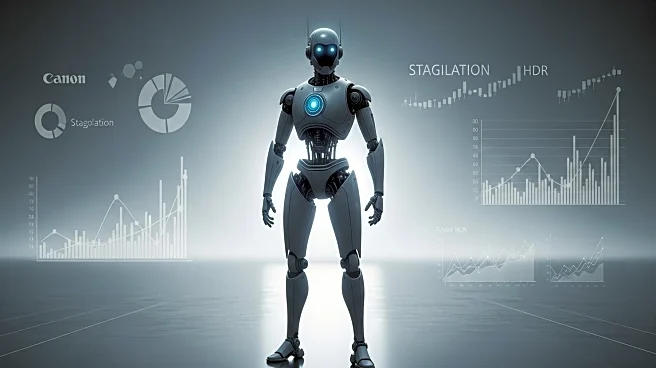What's Happening?
Mercer, a consulting firm, has introduced two AI-powered HR platforms, Workforce Insights and Aida, designed to provide global benchmarks, dynamic analytics, and tailored insights for HR leaders. This development comes at a time when the U.S. labor market is experiencing signs of stagflation, characterized by slower recruiting and persistent wage growth. Andrew Flowers, chief economist at Appcast, notes that while the labor market is cooling, it is not loosening, presenting a challenge for HR professionals. The platforms aim to enhance data-driven decision-making and workforce strategies, addressing the complexities of the current economic climate.
Why It's Important?
The introduction of AI-driven HR tools by Mercer is significant as it addresses the challenges posed by the current economic uncertainty and labor market conditions. With the potential for mild stagflation, HR leaders face the task of navigating a market with contradictory signals, such as elevated wages and labor shortages. These platforms offer a solution by providing insights that can help organizations make informed decisions, potentially improving recruitment and retention strategies. The broader impact includes the potential for increased efficiency and competitiveness in the U.S. labor market, benefiting both employers and employees.
What's Next?
As the economic landscape continues to evolve, HR leaders are likely to increasingly rely on technology to adapt to changing conditions. The success of Mercer's platforms could lead to wider adoption of AI in HR practices, influencing how companies manage their workforce. Additionally, the ongoing economic uncertainty may prompt further innovation in HR technology, as organizations seek to remain agile and competitive. Stakeholders, including businesses and policymakers, will need to monitor these developments closely to understand their implications for the labor market and broader economy.
Beyond the Headlines
The deployment of AI in HR practices raises ethical and legal considerations, particularly regarding data privacy and the potential for bias in decision-making processes. As these technologies become more prevalent, companies will need to ensure they are used responsibly and transparently. Furthermore, the integration of AI in HR could lead to shifts in workplace culture, as employees and managers adapt to new tools and processes. These changes may influence employee engagement and satisfaction, highlighting the need for organizations to balance technological advancements with human-centric approaches.









